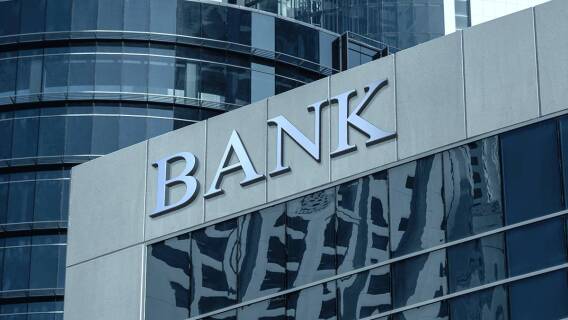We’ve all seen the news: three banks have collapsed this month. And, these banks were not minnows: they produced the #2 (SVB Financial Group, the parent company of Silicon Valley Bank) and #3 (Signature Bank) largest bank failures in U.S. banking history. Silicon Valley Bank was the 16th largest bank in the country.
Investor worries about the banking system in general, and some banks in particular, are broadly driving bank share prices down sharply. First Republic Bank (FRC) is under severe pressure. Credit Suisse (CS) accepted a $54 billion lifeline from the Swiss central bank, at least temporarily closing a potential black hole in the global financial system.
Banking’s lifeblood isn’t money, it is trust. If customers have confidence that a bank is sound, they will trust that bank with their money. This applies to all forms of money – whether it is everyday deposits or exotic credit derivatives. But, once that trust is broken, a bank is almost certainly doomed. Customers pull their deposits, credit lines and other forms of money from the bank, leading to the kind of death spiral that brought down the three banks earlier this month. Contracts provide minimal protection – they mostly help sort out who gets what scraps after a collapse.
[text_ad]
If trust in banks is getting edgy, can investors trust the kind of banks that have that very word in their name, the “trust” banks?
In general, yes. Major trust banks like State Street Corporation (STT), Bank of New York Mellon (BK) and The Northern Trust Company (NTRS) look sound.
Trust banks, in their purest form, are different from other banks. The typical commercial bank accepts customers’ cash deposits. These deposits are direct obligations of the bank – they are liabilities on the bank’s balance sheet. The bank promises to return those deposits in cash in full to customers on demand. However, that cash doesn’t sit in the bank’s vault. To make a profit, the bank lends these deposits to other customers at a higher interest rate. The bank might also buy Treasury securities and other very low-risk securities. These loans and securities become assets on the bank’s balance sheet. So, most of the assets and liabilities of commercial banks comprise loans, Treasuries and deposits. For example, at mega-bank Wells Fargo, 89% of its $1.9 trillion in assets are loans and securities, while 81% of its liabilities are deposits.
If, for whatever reason, depositors worry about the bank’s ability to keep its promise, they will demand their money back. As more depositors withdraw their money, trust in the bank can be damaged, leading to even more customers pulling out their money. These banks don’t have the cash available to meet all of the demands, as that cash was loaned out to others. The bank won’t be able to honor its promise to customers, so it collapses.
The Difference with Trust Banks
Trust banks are structurally different. Their primary business is being a custodian of other people’s securities – typically the stocks and bonds of professional money managers, mutual funds, ETFs and other investment funds. The key difference from a commercial bank is that a trust bank essentially keeps all of these securities in its vault for safekeeping. They are neither liabilities nor assets of the trust bank and so the trust bank cannot lend the money out to others. When customers want access to these securities – which they do on a daily basis given the trading volume in stocks and bonds – they are always fully available in an instant.
One frequent question about trust companies is this: what about the trillions of dollars they report as assets under custody (AUC)? State Street Corporation (STT), for example, has $44 trillion in assets under custody. Would the bank collapse if customers wanted this money back? In general, no. These assets are the stocks and bonds that the bank holds in its vault as custodian for its customers – as described earlier they are not assets and liabilities of the bank. So, since these securities are available in full at a moment’s notice, the bank could theoretically immediately hand over all of them to customers.
State Street has another business that can produce a related question: what about the $4.1 trillion in assets under management (AUM) that it reports? State Street is the manager of a vast array of ETFs, including S&P 500 index ETFs. The popular SPDR series of index ETFs are overseen by State Street. The securities held in these funds are not obligations of the bank – they are merely managed by the bank. All of the securities are held in custody – they are not converted into loans to others. So, just like the custody assets, they are available in full at a moment’s notice.
An observant analyst might then ask: I see that State Street owns 5% of SVB Financial. Will the collapse of that bank cost State Street almost $1 billion, which is a sizeable chunk of its $25 billion in equity? Since State Street itself doesn’t own any of SVB Financial – the shares are owned by the index ETFs – the collapse of that bank won’t affect State Street’s capital. The $1 billion loss is a tiny fraction of the $4.1 trillion of assets managed by the ETF family, and that loss is absorbed by those customers who invested in the ETFs. So, State Street itself has essentially no direct exposure to SVB Financial.
So, to answer the first question: can investors trust the trust banks? While all financial institutions carry risks, and trust banks carry risks from counter-party exposure and other sources of potential problems, trust banks are structurally different from commercial banks, so they are not likely to suffer the same run-on-the-bank problems as Silicon Valley Bank, Signature Bank and Silvergate Capital. So, yes, investors can generally trust the trust banks.
The Cabot Turnaround Letter and Cabot Undervalued Stocks Advisor offer stock ideas, commentary on the markets and other topics relevant to contrarian and value investors, all supported by our rigorous and disciplined methodology, research and analysis. Let us help you sort through the market to find the best contrarian and value stocks.
[author_ad]

